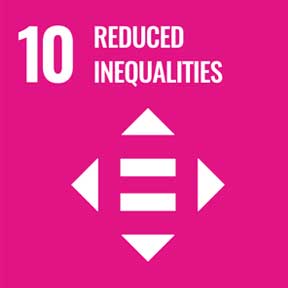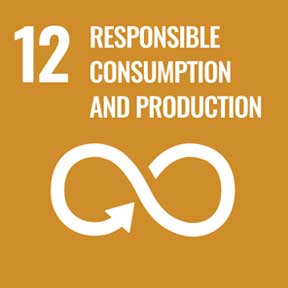
Publication
2023 to 2027 Departmental Sustainable Development Strategy
ISSN: 2817-7061
SECTION 1
Introduction to the Departmental Sustainable Development Strategy
The 2022 to 2026 Federal Sustainable Development Strategy (FSDS) presents the Government of Canada’s sustainable development goals and targets, as required by the Federal Sustainable Development Act. This is the first FSDS to be framed using the 17 Sustainable Development Goals (SDGs) of the United Nations 2030 Agenda and provides a balanced view of the environmental, social and economic dimensions of sustainable development.
In keeping with the purpose of the Act, to make decision-making related to sustainable development more transparent and accountable to Parliament, the Canadian Intergovernmental Conference Secretariat supports the goals laid out in the FSDS through the activities described in this Departmental Sustainable Development Strategy (DSDS).
The Federal Sustainable Development Act also sets out 7 principles that must be considered in the development
of the FSDS as well as DSDSs. These basic principles have been considered and incorporated in the Canadian Intergovernmental Conference Secretariat’s DSDS.
In order to promote coordinated action on sustainable development across the Government of Canada, this departmental strategy integrates efforts to advance Canada’s implementation of the 2030 Agenda National Strategy, supported by the Global Indicator Framework (GIF) and Canadian Indicator Framework (CIF) targets and indicators. The strategy also now captures SDG initiatives that fall outside the scope of the FSDS to inform the development of the Canada’s Annual Report on the 2030 Agenda and the SDGs.
SECTION 2
Canadian Intergovernmental Conference Secretariat’s Sustainable Development Vision
The Canadian Intergovernmental Conference Secretariat (CICS) is an impartial agency founded 1973 whose mandate is to provide administrative support and planning services for federal-provincial-territorial and provincial-territorial conferences of first ministers, ministers and deputy ministers, throughout Canada.
It is important to note that CICS does not convene conferences nor choose their location or format. It is called upon to serve such meetings, with the primary objective to relieve client departments of the numerous technical and administrative tasks associated with the planning and conducting of multilateral conferences, thereby enabling participants to concentrate on substantive intergovernmental policy issues. CICS provides continuous, effective and impartial administrative support to these meetings.
Being a micro-organization of approximately 30 employees, CICS is limited in its potential contribution with regards to the principles of the United Nations 2030 Agenda for Sustainable Development, the UN Sustainable Development Goals, and Canada’s 2030 Agenda National Strategy. Nevertheless, the Canadian Intergovernmental Conference Secretariat is committed to doing all it can to contribute, by taking small but effective steps. Mandatory training, remote interpretation and holding discussion groups will be among some of its planned activities to ensure that business processes related to conference procurement or information technology are done with green considerations and indigenous cultural competency in mind.
SECTION 3
Listening to Canadians
As required by the Federal Sustainable Development Act, the Canadian Intergovernmental Conference Secretariat has taken into account comments on the draft 2022-2026 FSDS made during the public consultation held from March 11 to July 9, 2022.
During the public consultation, more than 700 comments were received from a broad range of stakeholders, including governments, Indigenous organizations, non-governmental organizations, academics, businesses, and individual Canadians in different age groups and of various backgrounds. The draft FSDS was also shared with the appropriate committee of each House of Parliament, the Commissioner of the Environment and Sustainable Development, and the Sustainable Development Advisory Council for their review and comment.
What We Heard
Across the submissions received, Canadian Intergovernmental Conference Secretariat identified sustainable development priorities and issues that affect us:
– “Consider history and culture as a way to integrate Indigenous perspectives.” (p. 7 of mid-consultation report). This aligns to the cultural competency training departmental action identified by CICS.
– The importance of “integrating sustainability information in business practices such as procurement” (p. 20 of the end of consultation report), which aligns to CICS’s departmental action around strengthening green procurement.
What We Did
The Canadian Intergovernmental Conference Secretariat took the above-mentioned key priorities and issues into consideration in this DSDS. As a direct response to the FSDS and its principles, training in green procurement and Indigenous culture competency have been identified and added as mandatory training for all procurement specialists in the organization.
Please find more information on the FSDS public consultation and its results in the FSDS Consultation Report.
SECTION 4
Canadian Intergovernmental Conference Secretariat’s Commitments




GOAL 10:
ADVANCE RECONCILIATION WITH INDIGENOUS PEOPLES AND TAKE ACTION ON INEQUALITY
FSDS Context:
This Goal’s focus on taking action on inequality and advancing reconciliation with First Nations, Inuit, and Métis communities draws inspiration from SDG Global Indicator Framework targets:
- 10.2: By 2030, empower and promote the social, economic and political inclusion of all, irrespective of age, sex, disability, race, ethnicity, origin, religion or economic or other status
- 10.3: Ensure equal opportunity and reduce inequalities of outcome, including by eliminating discriminatory laws, policies and practices and promoting appropriate legislation, policies and action in this regard
Social, economic, and environmental inequalities persist in Canada. These inequalities disproportionately affect people with multiple intersecting identity factors such as gender identity and expression, race and ethnicity, faith community, Indigeneity, disability, sexual orientation, and low socioeconomic status.
Target theme: Advancing reconciliation with First Nations, Inuit, and the Métis communities.
Target: Between 2023 and 2026, and every year on an ongoing basis, develop and table annual progress reports on implementing the United Nations Declaration on the Rights of Indigenous Peoples Act (Minister of Justice and Attorney General of Canada)
|
IMPLEMENTATION STRATEGY |
DEPARTMENTAL ACTION |
PERFORMANCE INDICATOR STARTING POINT TARGET |
HOW THE DEPARTMENTAL ACTION CONTRIBUTES TO THE FSDS GOAL AND TARGET AND, WHERE APPLICABLE, TO CANADA’S 2030 AGENDA NATIONAL STRATEGY AND SDGS |
|
Implement the United Nations Declaration on the Rights of Indigenous Peoples Act |
Ensure all employees complete cultural competency training on advancing reconciliation with First Nations, Inuit, and Métis Peoples and/or training on the United Nations Declaration on the Rights of Indigenous Peoples. Program: Internal Services |
Performance Indicator: Percentage of staff who have completed mandatory Indigenous cultural competency training. Starting point: Percentage of staff trained [0% in 2023-24] Target: 100% by March 31, 2025 |
Public servants are in a unique position to help build respectful relationships with Indigenous Peoples in Canada. This action encourages employees to increase their cultural competency skills and awareness of issues related to First Nations, Inuit and Métis in Canada, and their knowledge of the UN Declaration. This action contributes to the development of necessary cultural competency knowledge and skills to implement the UN Declaration. Some examples of courses include:
*Mandatory Relevant targets or ambitions: GIF Target – 10.3 Ensure equal opportunity and reduce inequalities of outcome, including by eliminating discriminatory laws, policies and practices and promoting appropriate legislation, policies and action in this regard |
Initiatives advancing Canada’s implementation of SDG 10 – Reduced Inequalities
The following initiatives demonstrate how the Canadian Intergovernmental Conference Secretariat’s programming supports the 2030 Agenda and the SDGs, supplementing the information outlined above.
|
PLANNED INITIATIVES |
ASSOCIATED DOMESTICS TARGETS OR AMBITIONS AND/OR GLOBAL TARGETS |
|
In the spirit of economic reconciliation with Indigenous peoples, the Government of Canada has established a mandatory minimum target of at least 5% of the value of federal contracts to be awarded to businesses owned and led by Indigenous peoples. As per the established schedule prescribed by Indigenous Services Canada, the CICS is part of the Phase 3, where it is required to meet the mandatory minimum target of 5% of its total contracts to Indigenous businesses annually by 2024-2025. Although the agency is not required to meet the 5% for another year, the organization is committed to helping the Indigenous community and has already adjusted its internal processes and procurement plan. Targets have been set within the organization at 5% for fiscal year 2022-2023, 2023-2024 and 2024-2025 respectively. |
Relevant targets or ambitions: GIF Target – 10.2 By 2030, empower and promote the social, economic and political inclusion of all, irrespective of age, sex, disability, race, ethnicity, origin, religion or economic or other status GIF Target – 10.3 Ensure equal opportunity and reduce inequalities of outcome, including by eliminating discriminatory laws, policies and practices and promoting appropriate legislation, policies and action in this regard |

GOAL 12:
REDUCE WASTE AND TRANSITION TO ZERO-EMISSION VEHICLES
FSDS Context:
CICS is Integrating Sustainable Development via the following initiatives:
Support the transition to a low-carbon economy through green procurement: Support clean technologies and green products and services by taking environmental considerations into account in our purchasing decisions. Our approach is to continue leveraging instruments established by Public Services and Procurement Canada (PSPC) designed to meet federal government green procurement standards.
Reduce, reuse and recycle: CICS has set its multi-function devices to double-sided and black and white printing as the default standard. Purchased paper and toners contain recycled materials; empty toner cartridges are also re-cycled. The Secretariat is also considering creating an inventory of surplus items for re-use internally. Currently, old computers are sent to Computers for Schools while other surplus items are sent to GC Surplus.
Control printing with card access has been added to most multi-function devices at Headquarters, thus allowing the monitoring of printing activities and the reporting of paper utilization and color printing.
Promote responsible disposal: The Secretariat continues to ensure that surplus electronics and electrical waste (e.g., batteries, networking equipment, and electrical wiring) are handled in an environmentally appropriate manner.
Going Paperless: CICS is using technology to encourage a paperless environment: smart boards and Bring your own devices (BYOD) connected to Wi-Fi. Finance and Procurement started to eliminate the use of paper files and now accept electronic signatures.
Target: The Government of Canada’s procurement of goods and services will be net-zero emissions by 2050, to aid the transition to a net-zero, circular economy (All Ministers)
|
IMPLEMENTATION STRATEGY |
DEPARTMENTAL ACTION |
PERFORMANCE INDICATOR STARTING POINT TARGET |
HOW THE DEPARTMENTAL ACTION CONTRIBUTES TO THE FSDS GOAL AND TARGET AND, WHERE APPLICABLE, TO CANADA’S 2030 AGENDA NATIONAL STRATEGY AND SDGS |
|
Strengthen green procurement criteria |
Ensure all procurement and materiel management specialists at the CICS are trained in green procurement. Program: Internal Services |
Performance Indicator: Percentage of procurement and materiel management specialists trained in green procurement. Starting point: In 2023-24, 80% of procurement and materiel management specialists trained in green procurement. Target: 100% annually |
Green procurement incorporates environmental considerations into purchasing decisions and is expected to motivate suppliers to reduce the environmental impact of the goods and services they deliver, and their supply chains. Relevant targets or ambitions: CIF Ambition: Canadians consume in a sustainable manner CIF Indicator: 12.2.1 Proportion of businesses that adopted selected environmental protection activities and management practices GIF Target: 12.7 Promote public procurement practices that are sustainable, in accordance with national policies and priorities |
Implementation strategies supporting the goal
This section is for implementation strategies that support the goal “Reduce waste and transition to zero-emission vehicles” but not a specific FSDS target
Initiatives advancing Canada’s implementation of SDG 12 – Responsible Consumption and Production
The following initiatives demonstrate how the Canadian Intergovernmental Conference Secretariat’s programming supports the 2030 Agenda and the SDGs, supplementing the information outlined above.
|
PLANNED INITIATIVES |
ASSOCIATED DOMESTICS TARGETS OR AMBITIONS AND/OR GLOBAL TARGETS |
|
Promote sustainable development training internally to staff in order to increase awareness and understanding of the Government of Canada’s objectives related to sustainable development and greening government. Invite one guest per year to speak to environmental initiatives and progress within the wider Government of Canada context (i.e., what other organizations are doing, etc.).
Optional training:
Invited guests: |
Relevant targets or ambitions: CIF Ambition: Canadians consume in a sustainable manner CIF Indicator: 12.2.1 Proportion of businesses that adopted selected environmental protection activities and management practices GIF Target :12.7 Promote public procurement practices that are sustainable, in accordance with national policies and priorities |
|
CICS has implemented voluntary recycling bins for pens, personal protective equipment, and batteries at the workplace. All new employees are informed about this initiative and the location of the bins. |
12.4: By 2020, achieve the environmentally sound management of chemicals and all wastes throughout their life cycle, in accordance with agreed international frameworks, and significantly reduce their release to air, water and soil in order to minimize their adverse impacts on human health and the environment 12.5: By 2030, substantially reduce waste generation through |

GOAL 13:
TAKE ACTION ON CLIMATE CHANGE AND ITS IMPACTS
FSDS Context:
Taking action on climate change by reducing emissions of greenhouse gases and short-lived climate pollutants and building resilience directly supports SDG Global Indicator Framework targets:
- 13.2: Integrate climate change measures into national policies, strategies and planning
- 13.3: Improve education, awareness-raising and human and institutional capacity on climate change mitigation, adaptation, impact reduction and early warning
The effects of human-caused climate change are being felt across our country. Canadians are seeing more extreme temperatures and precipitation as well as more frequent and severe wildfires, heatwaves, droughts and flooding. Canada is warming at two times the global rate, and this rate is even greater in the Canadian Arctic. Meanwhile, rising sea levels, along with less-visible effects such as increased acidity and reduced levels of oxygen in the oceans, are damaging ecosystems and industries such as fisheries.
Target theme: Federal Leadership on Greenhouse Gas Emissions Reductions and Climate Resilience
Target: The Government of Canada will transition to net-zero carbon operations for facilities and conventional fleets by 2050
|
IMPLEMENTATION STRATEGY |
DEPARTMENTAL ACTION |
PERFORMANCE INDICATOR STARTING POINT TARGET |
HOW THE DEPARTMENTAL ACTION CONTRIBUTES TO THE FSDS GOAL AND TARGET AND, WHERE APPLICABLE, TO CANADA’S 2030 AGENDA NATIONAL STRATEGY AND SDGS |
|
Implement the Greening Government Strategy through measures that reduce greenhouse gas emissions, improve climate resilience, and green the government’s overall operations CICS will adopt clean technology and undertake clean technology demonstration projects |
CICS will reduce its travel requirements by using Zoom’s integrated simultaneous interpretation to reduce the travel of interpreters for in-person and hybrid conferences. Program: Internal Services |
Performance indicator: Starting point: 71.95% Target: 90% annually |
Relevant targets or ambitions: Emissions from air travel are a significant contributor to climate change, so it is crucial that individuals and organizations reduce the frequency and distance of travel via aviation. CIF Ambition: Take urgent action to combat climate change and its impacts GIF Indicator: 13.2 Integrate climate change measures into national policies, strategies and planning GIF Target: 13.2.2 Total greenhouse gas emissions per year |
Initiatives advancing Canada’s implementation of SDG 13 – Climate Action
The following initiatives demonstrate how the Canadian Intergovernmental Conference Secretariat’s programming supports the 2030 Agenda and the SDGs, supplementing the information outlined above.
|
PLANNED INITIATIVES |
ASSOCIATED DOMESTICS TARGETS OR AMBITIONS AND/OR GLOBAL TARGETS |
|
The travellers in need of a rental car to get to a conference will be encouraged to opt for a hybrid or electric vehicle when they are available by the car rental companies. |
|
|
The travellers in need of accommodation will be encouraged to choose an eco-friendly hotel, provided it is operationally feasible. |
|
SECTION 5
Integrating Sustainable Development
Being a micro-organization of approximately 30 employees, CICS is limited in its ability to address the vast majority of the 17 Sustainable Development Goals (SDGs) of the United Nations 2030 Agenda. However, through education, green procurement and green processes, and advancing reconciliation, CICS can participate. The organization is fully committed and fully supports the environmental, social and economic dimensions of sustainable development. Every contribution, however small, makes a difference.